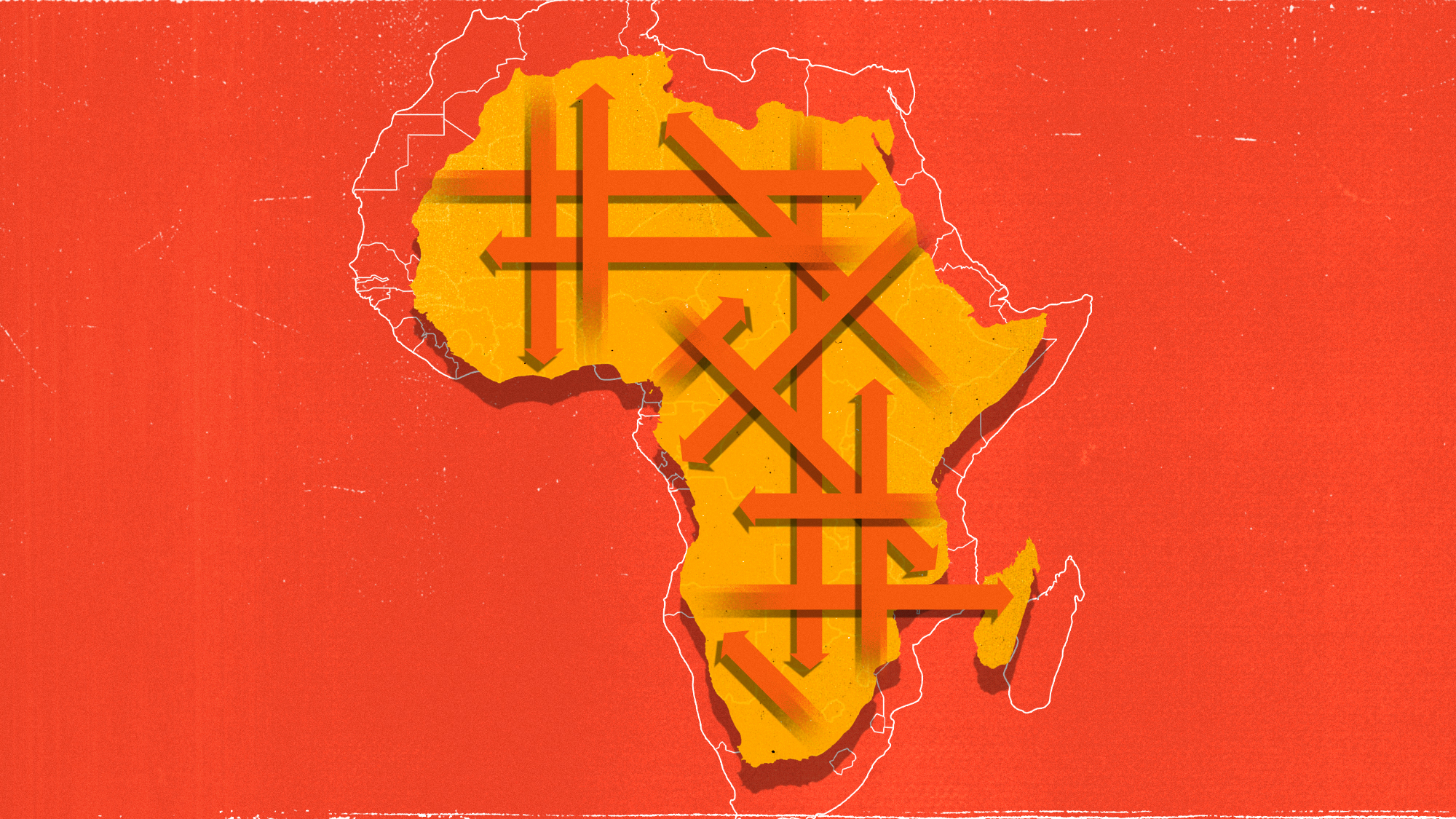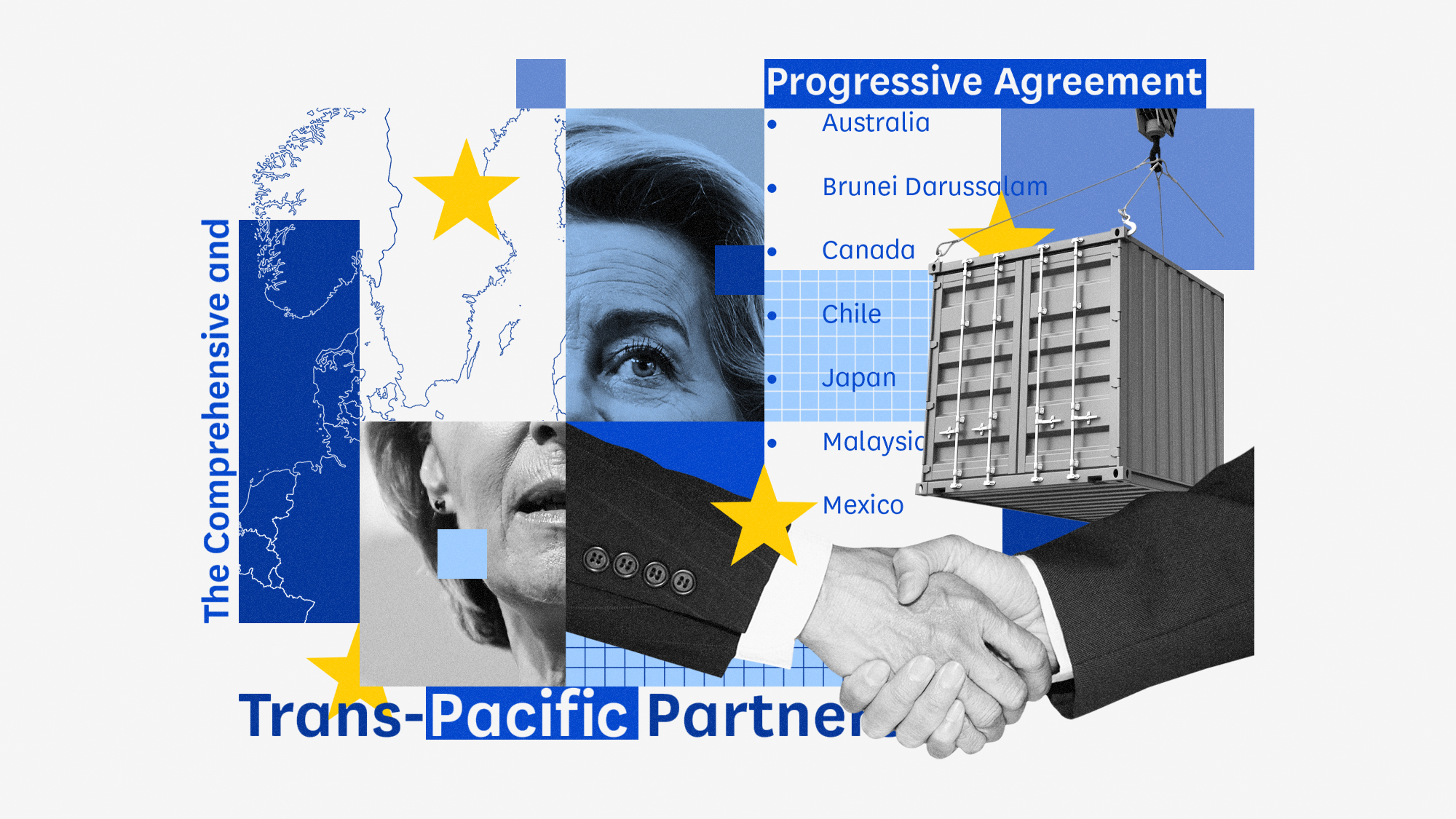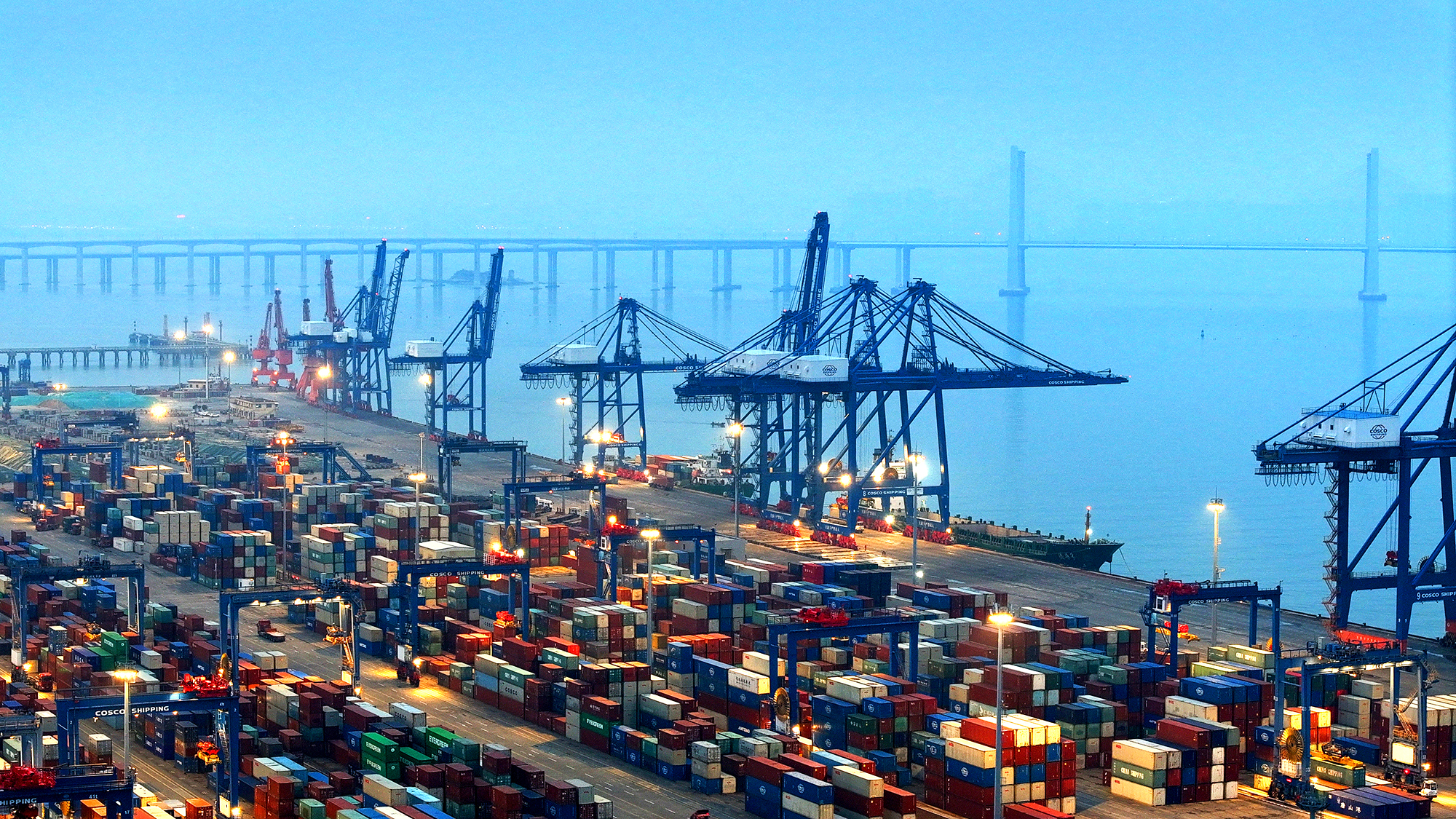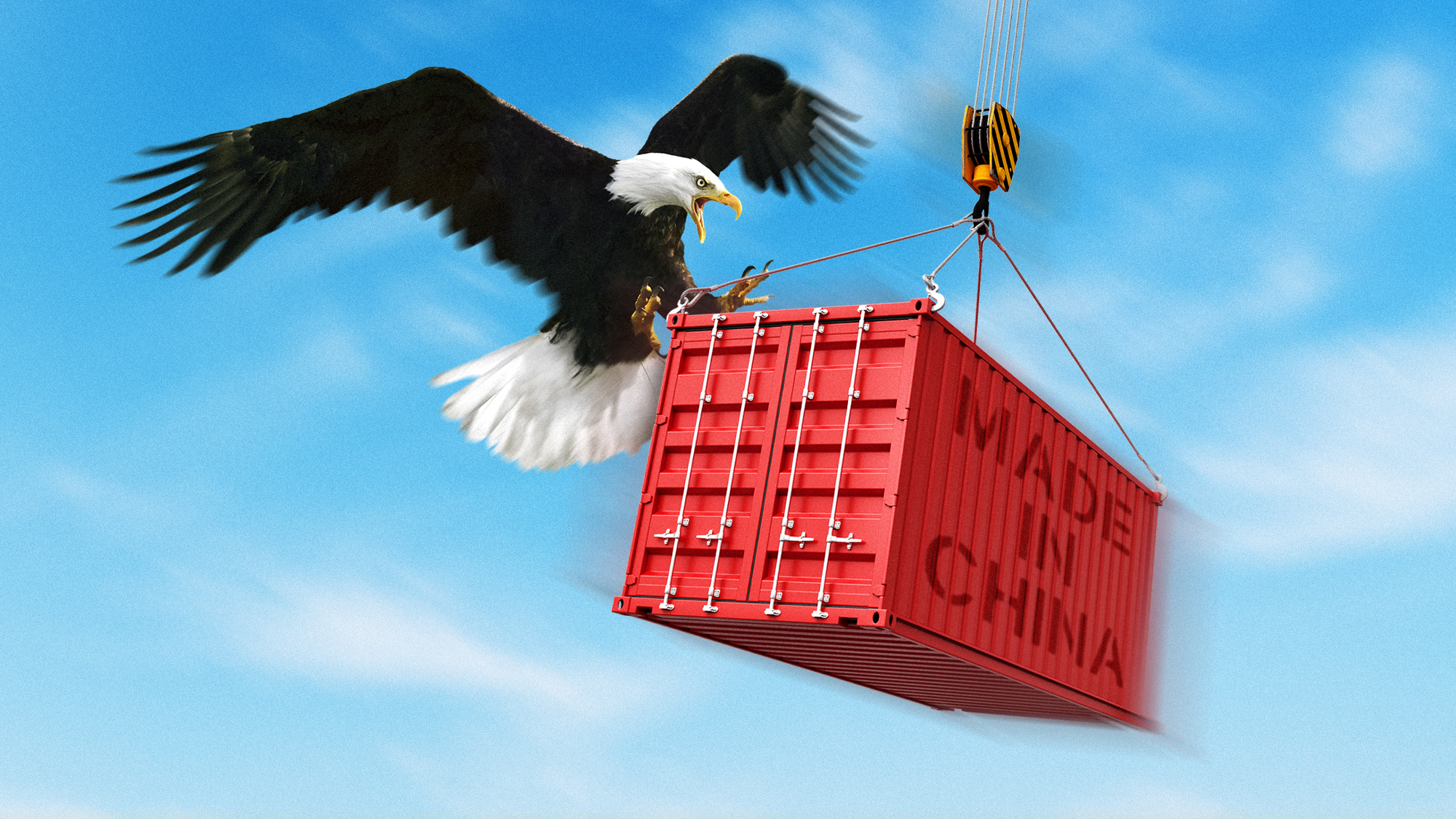How Kenya is leading the move towards a borderless Africa
Concerns around security, smuggling and the impact on local employment markets continue to hamper integration efforts

A free daily email with the biggest news stories of the day – and the best features from TheWeek.com
You are now subscribed
Your newsletter sign-up was successful
Kenya will scrap visas for all African nationals by the end of the year, a move it hopes will open up trade and travel on the continent.
Speaking at a climate change conference in Congo-Brazzaville, the country's president William Ruto said the removal of barriers was needed to realise the dream of a continental free trade agreement, adding that "it is time we…realise that having visa restrictions among ourselves is working against us".
Kenya joins The Gambia, Benin and Seychelles as the only countries to offer unrestricted travel on the continent despite the long-held dream of a borderless Africa.
The Week
Escape your echo chamber. Get the facts behind the news, plus analysis from multiple perspectives.

Sign up for The Week's Free Newsletters
From our morning news briefing to a weekly Good News Newsletter, get the best of The Week delivered directly to your inbox.
From our morning news briefing to a weekly Good News Newsletter, get the best of The Week delivered directly to your inbox.
How would a borderless Africa work?
"Costly and time-consuming" visa requirements – 32 out of 54 African countries still require the nationals of at least half the continent's countries to obtain a visa – combined with high air fares, have "long created barriers to inter-African travel for African passport holders", said The Guardian.
To address this, the African Union (AU) has aggressively "pursued the goal of facilitating visa-free travel within the continent", Africa News reported, but although there have been bilateral and regional agreements, progress towards completely unrestricted travel has been "slow".
2018 saw the AU assembly adopt the Protocol to the Treaty, establishing the African Economic Community relating to the free movement of people and rights of residence and establishment. While hailed as a landmark document, five years later little over half the countries in Africa have signed it, and just four – Rwanda, Niger, São Tomé and Principe, and Mali – have ratified it.
This shows that the "political determination to fulfil the widely shared aspiration for a borderless Africa is still inadequate", said Al Jazeera columnist Tafi Mhaka.
A free daily email with the biggest news stories of the day – and the best features from TheWeek.com
What are the obstacles to integration?
The primary fear among leaders is that implementation of the protocol would "trigger political instability", said Alan Hirsch, Professor at The Nelson Mandela School of Public Governance at the University of Cape Town, in The Conversation. Several of Africa's richer countries appear concerned that free movement could precipitate the "sudden influx of low-skilled economic migrants from poorer countries".
Meanwhile in West Africa, "where borders are porous, easy movement through states has contributed to the crossing of borders in the region by terrorists such as Boko Haram and the Islamic State", said The Republic.
In the post-colonial era African states have "had to consider the myriad of challenges including terrorism, economic meltdown, poverty and unemployment", said the news site. These pose a "unique challenge to states who must choose whether to shed their ability to control and dictate the internal affairs of their countries or abide by ideology and international agreements".
What are the ways forward?
There have been conflicting views about how to achieve Pan-Africanism since the end of colonial rule in the middle of the 20th century. While some leaders believed the objective should be continental integration from the start, others favoured an incremental approach starting at a regional level.
Regional blocs – most notably the East African Community (EAC) and the Economic Community of Western African States (ECOWAS) – have already made huge strides in lifting restrictions in cross-border movement and in some cases even allow passport-free cross-border travel within their respective regions.
One possibility, wrote Hirsch for the Global Government Forum, would be to try to follow the "European model". Europe is "unique in achieving internal freedom of movement, residence, and establishment for all citizens of EU countries", he argued, but this was achieved over 40 or so years, meaning that the road to free movement "would be long".
A second example would be South America, where "there was the attention given to common documentation, border management systems and bureaucratic procedures, even before there was significant border opening", said Hirsch. Only after this were systems developed "to facilitate business travel and the mobility of skilled people". Then "when the decision was made to liberalise further in the 2000s, reliable systems and practices were already in place".
Another, more radical solution, is an African Union passport. First mooted a quarter of a century ago, an "AU passport" was launched in 2016 to allow unrestricted travel for Africans within the continent.
However, concerns about security, smuggling and the impact on the local employment markets meant the "roll-out has been limited and the passports are mainly used by diplomats and high-ranking officials", said The Guardian.
-
 Political cartoons for February 16
Political cartoons for February 16Cartoons Monday’s political cartoons include President's Day, a valentine from the Epstein files, and more
-
 Regent Hong Kong: a tranquil haven with a prime waterfront spot
Regent Hong Kong: a tranquil haven with a prime waterfront spotThe Week Recommends The trendy hotel recently underwent an extensive two-year revamp
-
 The problem with diagnosing profound autism
The problem with diagnosing profound autismThe Explainer Experts are reconsidering the idea of autism as a spectrum, which could impact diagnoses and policy making for the condition
-
 Will Europe pivot to Asia on trade?
Will Europe pivot to Asia on trade?Today's Big Question It could be an attempt to sidestep the impact of Trump's tariffs
-
 Is the EU funding Russia more than Ukraine?
Is the EU funding Russia more than Ukraine?The Explainer EU remains largest importer of Russian fossil fuels despite sanctions aimed at crippling Kremlin's war effort
-
 Visa wants to let AI make credit card purchases for you
Visa wants to let AI make credit card purchases for youThe Explainer The program will allow you to set a budget and let AI learn from your shopping preferences
-
 Lesotho: the tiny African nation in the crosshairs of Trump's tariff war
Lesotho: the tiny African nation in the crosshairs of Trump's tariff warUnder the Radar US president imposes 50% reciprocal levy on the impoverished state: the highest of his so-called 'Liberation Day' tariffs
-
 Is this the end of globalisation?
Is this the end of globalisation?Today's Big Question American-led post-war order is 'finally starting to crumble' but that could bring about 'a more inclusive world'
-
 Are free trade zones and alliances the answer to Trump's tariffs?
Are free trade zones and alliances the answer to Trump's tariffs?Today's Big Question Temptation is to retaliate with trade barriers, but most agree nations should focus on targeted trade pacts and strengthening cooperation
-
 Trump's tariffs: is EU's retaliation the best move?
Trump's tariffs: is EU's retaliation the best move?Today's Big Question Global US levy on steel and aluminium imports has the EU hitting back but the UK keeping options open
-
 Can the UK avoid the Trump tariff bombshell?
Can the UK avoid the Trump tariff bombshell?Today's Big Question President says UK is 'way out of line' but it may still escape worst of US trade levies